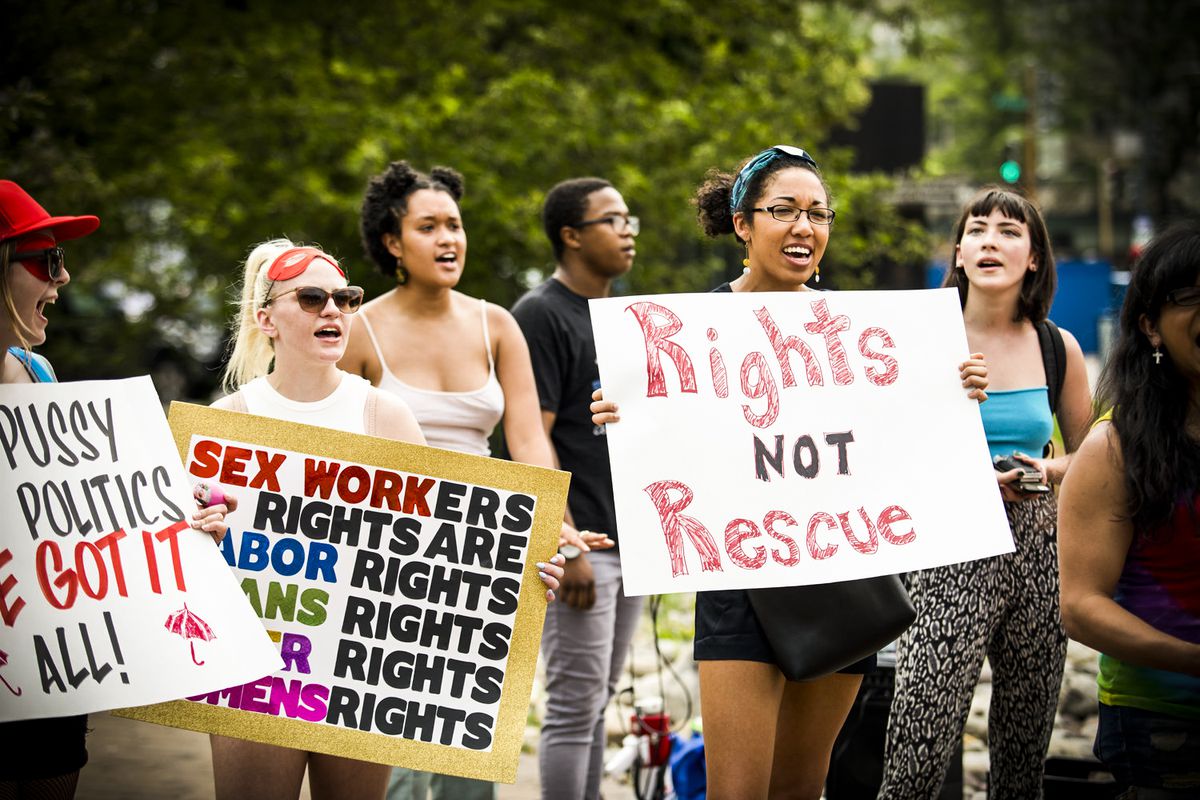On a November evening in 2017, a woman named Yang Song fell to her death from a fourth-floor balcony in the Flushing neighborhood of Queens, New York. She was only 38 years old and had immigrated to the United States from China with the hope of eventually owning her own business. In order to save money to fulfill that dream, she worked at a massage parlor in Flushing, where she engaged in sex work. To Song, sex work was legitimate work that provided a reliable source of income. But her multiple run-ins with the police, including one instance in which she was allegedly sexually assaulted and violently threatened by a police officer, show that not everyone shares her view that sex work is a legitimate form of work. Song’s life ultimately ended when she fell from the balcony of her apartment while attempting to escape from a police officer who was trying to arrest her for engaging in sex work.
Song’s story is unfortunately not unusual in the sex trade. Sex workers frequently endure police stings, diversion programs that cycle them through the criminal justice system, and discriminatory policing tactics that unfairly target people of color and transgender/gender non-conforming people. Police stings targeting massage parlor workers, many of whom are Asian migrant sex workers, have spiked dramatically in recent years. A 2017 report found that the number of Asian-identified people arrested for both unlicensed massage and prostitution increased by 2700 percent between 2012 and 2016. Yang Song’s death should alert us to the fact that heightened policing is not a solution to the challenges that sex workers face. I am therefore calling on New York state lawmakers to pass legislation that fully decriminalizes sex work for both sellers and buyers of sexual services.
You may ask: why decriminalize both the buying and selling of sex? Why not just decriminalize sex work itself? Some anti-sex trafficking groups and feminist advocacy groups such as the National Organization for Women (NOW) advocate for a model of decriminalization that would do just that — only decriminalize selling. This model is known as the “End Demand” Model (also referred to as the “Nordic Model”). As its name suggests, the model seeks to abolish the sex trade by ending demand for the sale of sexual services. But its implementation in other countries shows that it does not actually protect sex workers from economic exploitation and interpersonal violence. It instead keeps the sex trade underground, forcing sex workers to work harder to protect potentially exploitative clients. In countries like Sweden, Norway, and France, the End Demand Model has also led to reduced income and worsened living conditions for sex workers because they have a harder time finding demand for their work. And the sex workers who tend to suffer the most under the End Demand Model are immigrants, people of color, and transgender people. Though supporters of the End Demand Model have good intentions, they fail to understand that sex workers are not always victims who need to be “rescued” from the sex trade. For many sex workers, sex work is a legitimate form of work that can indeed be consensual.
Furthermore, the criminalization of sex work does nothing to solve the structural problems that often lead sex workers to enter the sex trade to begin with, such as poverty, immigration status, or inability to access adequately paying jobs. Police raids and coercive diversion programs cycle sex workers through the criminal justice system rather than direct them toward resources like safe housing, stable income, and health care. For example, a report published this year by the think tank Data for Progress found that undercover police officers often pose as clients and solicit sex from sex workers in order to build a case for their arrest. In some instances, these undercover officers verbally and physically harass sex workers under the guise of their fake identities as “clients.” Harassment at the hands of law enforcement often leaves sex workers with nowhere to turn, as many are fearful of being criminalized for engaging in sex work if they file a police report. This creates a vicious cycle of criminalization that makes it even harder for sex workers to find work outside of the sex trade, since having a criminal record is a significant barrier in the job search. In the Data for Progress report, Mystique Fatale, a black undocumented sex worker, describes having experienced homelessness for much of her life. Her immigration status, arrest record, and struggles with mental illness prevent her from holding down a stable 9-5 job, meaning sex work is her only option for survival. She writes that “the only reason my daughter and I aren’t homeless is because of sex work.”
Decriminalizing sex work would legitimize sex work as work and enable sex workers to exercise autonomy over their own bodies. Last year, a bill called the “Stop Violence in the Sex Trades Act” was introduced in the New York State Senate. This bill would uphold existing laws that criminalize sex trafficking but would decriminalize sex work between consenting adults. I urge state lawmakers to move this bill forward so we can prevent another tragic injustice like Yang Song’s death and protect people like Mystique Fatale who rely on sex work to support their families. Consensual sex workers are workers just like other New Yorkers, and they deserve labor protections, not more policing.
